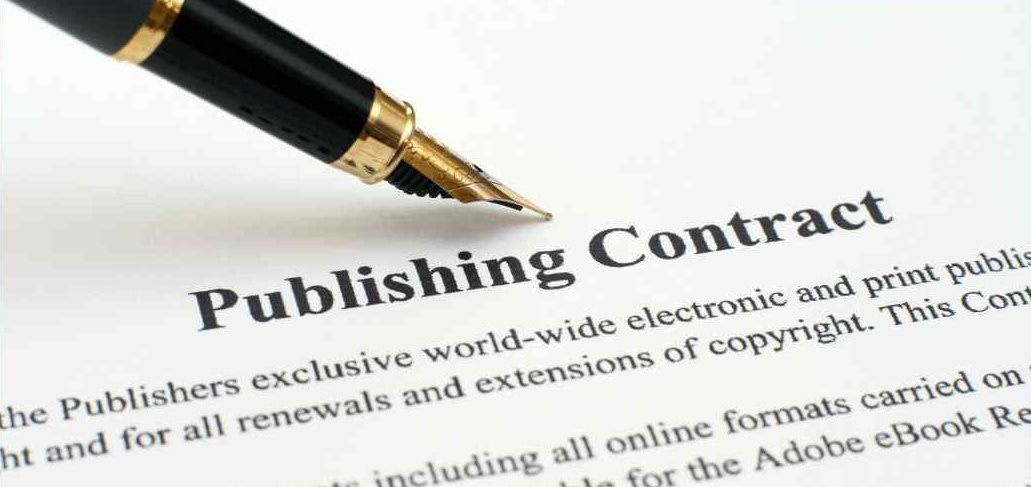Dodgy Contracts from Rogue Publishers: What to Watch Out For
Introduction
Navigating the world of indie publishing can be thrilling, but it's fraught with potential pitfalls.
Aspiring authors need to be vigilant when signing contracts with small presses, as there are several common issues that can lead to disappointment and frustration.
Here, we delve into some of the red flags you should watch out for in contracts offered by indie publishers.
1. Marketing and Promotion
While some indie publishing houses will provide you with details, some are vague about the publisher’s marketing and promotional efforts. It is crucial to ask for specifics:
What marketing channels will they use?
Will they arrange book signings, readings, or virtual events?
How active are they on social media?
For example, some indie publishers claim their books get reviews, but a closer look reveals these reviews might be sparse or lackluster. It is important to scrutinise how they intend to generate sales and awareness. If most of the reviews are on Amazon and not highly rated, it might indicate a lack of effective marketing.
The same also applies if some of the publishing house’s previous books have a number of reviews, but not massive sales it does ask where these reviews have come from.
2. Grant of Rights
A common issue in indie publishing contracts is the broad grant of rights. These contracts often give the publisher exclusive rights to the work in all formats—print, ebook, audiobook, etc. This can severely limit your future publishing options.
Make sure you understand the extent of the rights you are granting.
Negotiate to retain some rights or limit the scope of exclusivity.
3. Term of Agreement
Another critical point is the contract's duration. Some agreements don’t specify the term, leaving authors in a perpetual bind.
Clarify how long the publisher will have exclusive rights to your work.
Negotiate a reasonable term with an option for renewal.
4. Advance Payment
Some small presses often offer minimal advance payments against royalties. Sometimes, this might be as meager as a couple of free copies of your book.
Inquire about the payment structure and method.
Avoid platforms like PayPal that take a cut from your earnings.
Ensure the contract specifies when you will be paid.
5. Restrictions on Other Works
Many contracts contain clauses preventing you from publishing competitive works without the publisher's permission. This can be problematic if you have multiple projects.
Evaluate how this restriction might affect your other writing ventures.
6. Revenue Split
Indie publishers often split proceeds from book sales 90-10 in their favor after deducting costs for publication, production, and distribution.
Understand what constitutes 'appropriate costs' and how they are calculated, this can result in minimal earnings despite decent sales.
Be wary of contracts that might delay your earnings until a certain number of copies are sold.
Be careful
7. Reports and Payments
Contracts usually stipulate that publishers will provide annual statements of account, but this can be infrequent.
Insist on more frequent reports if possible.
Ensure transparency in sales and earnings.
8. Proofreading and Corrections
Contracts often give publishers the right to make typographical, syntactical, formatting, or layout corrections at their discretion.
Ensure you retain some level of control over final edits.
Negotiate to review any significant changes.
I know somebody who had their debut collection published who didn’t do this and discovered much to their horror when they saw the final copy, that 6 of their poems had had their titles changed without their permission as well as major changes in two more poems which left it a very different poem to what it was originally.
9. Purchasing Additional Copies
Some publishers offer authors the opportunity to purchase additional copies at production cost. This might sound appealing, but consider the implications:
Calculate how much this will cost you per copy.
Assess whether you’ll need to buy a large number to sell directly.
Direct Sales could well prove to be your primary revenue stream, so be cautious of any obligations that require significant upfront purchases.
Conclusion
Indie publishing can be a viable route for many authors, but it’s essential to approach contracts with a critical eye.
By understanding and negotiating these key points, you can protect your rights and ensure a fair deal. Do not be afraid to seek legal advice if you're unsure about any contract details, there are a lot of great indie publishers in the publishing world, but there are also a number which will exploit both the reader as well as the writer.
For authors seeking more control, self-publishing is another option to consider, though it requires a different skillset in areas like marketing and distribution.


